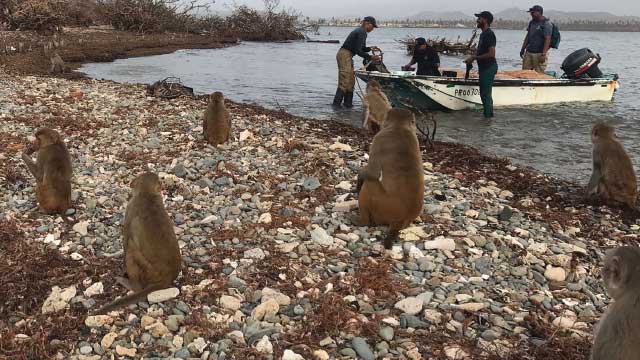 ISLAND HOP: Caretakers and research scientists commute to the monkeys’ home by boat.BONN AURE
ISLAND HOP: Caretakers and research scientists commute to the monkeys’ home by boat.BONN AURE
When Hurricane Maria ripped through the Caribbean last September, the small town of Punta Santiago, Puerto Rico, was devastated. Many homes were destroyed, and people lost reliable access to electricity, clean water, and food. In addition to making sure their own families and neighbors had what they needed to get by, some of Punta Santiago’s residents had another pressing concern: the fate of 1,700 rhesus macaques living on an island a kilometer away.
The monkeys inhabit Cayo Santiago, a 38-acre landmass off the east coast of Puerto Rico. The animals are the descendants of about 400 macaques brought to the island from India in 1938 by Clarence Carpenter, a primatologist then working with the School of Tropical Medicine in Puerto Rico. According to Richard Rawlins, ...














